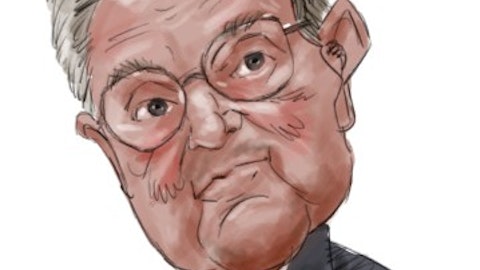Hedge funds see opportunities in credit investments (PIOnline)
The sensitivity of mortgage and other credit investments to an anticipated rise in interest rates can be mitigated, a credit hedge fund manager told attendees at the SkyBridge Alternatives Conference in Las Vegas Wednesday. Clayton DeGiacinto, chief investment officer at structured credit hedge fund manager Axonic Capital, said there are opportunities to earn returns in the mortgage market based on careful selection of individual securities. Opportunities exist to invest in non-agency residential mortgages bought at deeply discounted dollar prices, Mr. DeGiacinto said.
Soros-Funded Religious Left Group Targets Gitmo (FrontPageMag)
The chief torturer of Sudan’s Islamist regime is soon to visit the U.S., igniting not a peep of concern from left-leaning church officials ostensibly very concerned about “torture.” Instead, a long list of prominent church honchos is instead demanding President Obama close Guantanamo Bay detention center because of its reputed history of “torture.” Their letter was organized by the National Religious Campaign Against Torture, which has received over $1 million from George Soros.
Icahn, Southeastern propose alternative to Dell buyout deal (Reuters)
Activist investor Carl Icahn and Southeastern Asset Management Inc, two of Dell Inc. (NASDAQ:DELL) largest shareholders, have proposed an alternative to a $24.4 billion buyout deal led by founder Michael Dell. In a letter to Dell Inc. (NASDAQ:DELL)’s board, Icahn and Southeastern proposed giving Dell Inc. (NASDAQ:DELL) shareholders the option to either receive $12 per share in cash or $12 in additional shares valued at $1.65 per share. (r.reuters.com/tug97t) Icahn and Southeastern, both vocal opponents of the go-private deal, said in the letter they together held about 13 percent of Dell Inc. (NASDAQ:DELL)’s stock.
Hess to split roles of CEO and chairman (WSJ)
After a tussle with major shareholder Elliott Management, the New York energy company Hess Corp. (NYSE:HES) is splitting the roles of chairman and CEO. John Hess will hold his CEO job and the company will bring in John Krenicki, the former GE vice chairman, as non-executive chairman. Krenicki must still be elected and the change will take place after the company’s annual shareholder meeting on Thursday in Houston if approved by shareholders. Elliott has been pushing for changes at Hess Corp. (NYSE:HES) and is seeking to get its own slate of nominees elected to the board. Hess Corp. (NYSE:HES) has accused the hedge fund of trying to disrupt progress it has already made in reshaping itself as a pure-play exploration and production company.
Hedge Fund Manager Baran: Dollar Will Reach as High as 118 Yen (MoneyNews)
The yen broke through the 100 dollar resistance level Friday and was trading at 101.63, its weakest level in more than 4 ½ years. Now the question is will how low can it go. David Baran, co-founder of Tokyo-based hedge fund Symphony Financial Partners, says he doesn’t see the dollar stopping until 115 to 118 yen. “Give it time, it will happen,” he tells The Wall Street Journal. A weaker yen helps Japan by boosting its exports. But it can hurt the United States by limiting our exports to Japan.
Ira Sohn Confab Yields Few Winning Ideas (InstitutionalInvestorsAlpha)
They traipsed across the stage every 15 or 20 minutes — 15 high-profile hedge fund managers in all, over a span of six and a half hours. What brought these industry household names together? The annual Ira Sohn investing conference, which has become widely watched in recent years as a place where the big shots of the hedge fund industry unveil their next major bets. In exchange for making a sizable donation to the Sohn Conference Foundation (named after Wall Streeter Ira Sohn, who died of cancer at 29), attendees are supposed to receive “actionable” investment ideas from a slew of investment luminaries.
Japanese investors switch to foreign bonds (FT)
Japanese investors have turned into net buyers of foreign bonds for the first time since the Bank of Japan drastically loosened its policy stance, reversing a recent trend and prompting further yen weakness. By joining foreign hedge funds and other non-Japanese investors who have been selling yen-based assets in droves, Japanese investors could help extend the yen’s decline against the dollar, euro and other currencies, analysts said.



